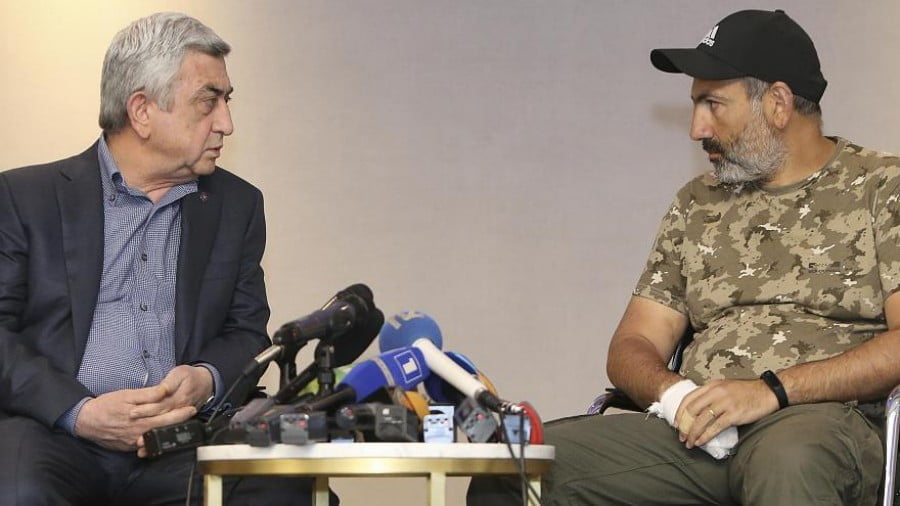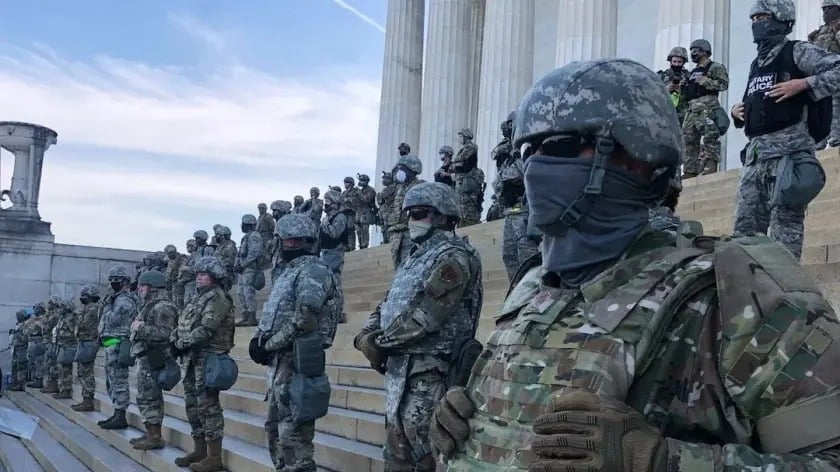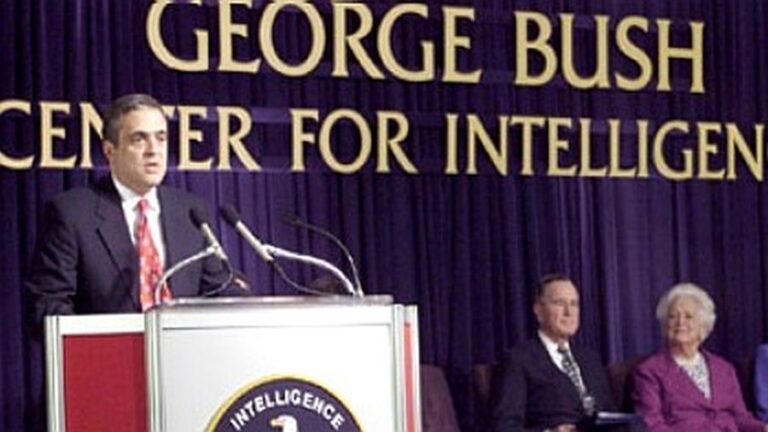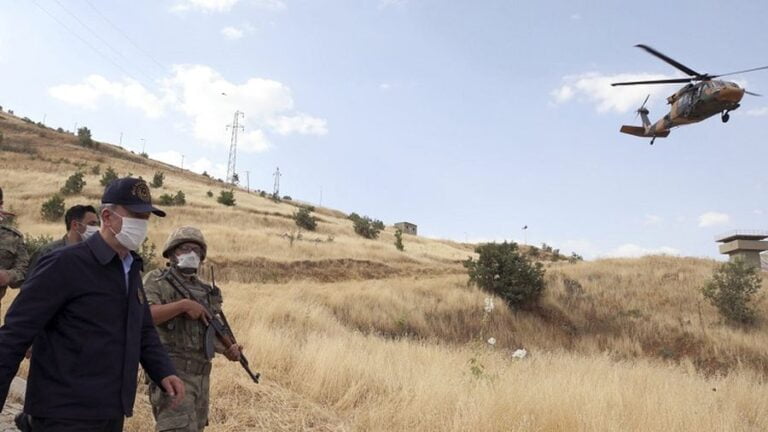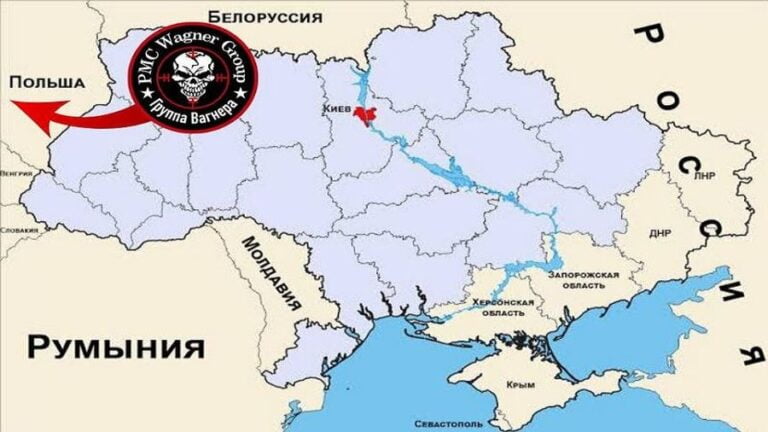The News That Russia Won’t Intervene in Armenia is an Infowar In and Of Itself
Russia was never going to “intervene” in stopping the Armenian Color Revolution (or “people’s revolution” as its supporters at home and abroad are referring to it as), and manufacturing a news event out of this non-existent issue is useful only in furthering weaponized infowar narratives such as maintaining the so-called “Russian threat” and making it seem like President Putin “folded” in front of anti-government leader Nikol Pashinyan.
—
There was never any chance that Russia would “intervene” in Armenia, but that didn’t stop the country’s Color Revolution leader Nikol Pashinyan from reassuring his countrymen that this scenario has apparently been averted, an announcement that was gleefully spread all across the Western Mainstream Media these outlets’ self-interested “deep state” backers who were more than happy to remind the world about the omnipotent so-called “Russian threat” and frame this non-event in a way that makes it seem like President Putin “backed down”. The Western public has been conditioned with a relentless stream of actual propaganda and a high degree of more professional infowar tactics to believe that the Russian reunification with Crimea wasn’t an exception to International Relations driven by the region’s historic, demographic, and geostrategic uniqueness from the rest of rump Ukraine, but was the beginning of a Eurasian-wide “hybrid war” blitzkrieg of which Armenia might have been the next so-called “victim” had it not been for Pashinyan.
The “Anti-Putin”
The hyper-nationalist figurehead aligned with the powerful Californian diaspora community is being presented as Armenia’s “anti-Putin” in the sense that he helped overthrow long-serving politician Serzh Sargsyan who was considered to be “Russia’s man”, which itself was a misleading description created in order to craft the perception that Moscow is somehow partially culpable for the country’s socio-economic malaise under the previous administration. For as ridiculous as this narrative is, Russia regrettably made itself an easy target because of its failure to communicate its “military diplomacy” with Azerbaijan to the masses, which allowed hostile foreign-backed forces and their domestic demagogic allies to portray it as “two-faced” and thus invent the supplementary storyline that Sargsyan was somehow “allowing” this happen by not “speaking out loudly enough” against it. Ignoring the fact that Russia is the only one of the three co-chairing Great Powers of the OSCE Minsk Group with a vested interest in regional stability, this narrative became believable to some people.
Russia surely explained its “military diplomacy” strategy to its Armenian counterparts from the permanent military, intelligence, and diplomatic bureaucracies (“deep state”) but didn’t invest enough time, resources, or even – to be brutally honest –will to sufficiently carry this out on the civil society level. Most Armenians would probably have still disagreed for nationalist reasons with Russia’s approach, but it would have nevertheless allowed the country to be seen in a more positive light as a Great Power that cares about what its partner’s population thinks about it, not in the negative way that it’s been framed as a result of losing control over how its perception is managed. No matter the “distrust” that some Armenians have for Russia, most of them would never believe that the country would use its Gyumri military base to “intervene” in their affairs, the scenario of which was indirectly implied from Pashinyan’s statement. Instead, bringing up this non-event in the first place was preplanned in order to serve several objectives.
Twisting Minds
The first is that Pashinyan’s patrons wanted him to remind Armenians of the claims that Sargsyan was “Moscow’s man” in order to inspire them to continue their Color Revolution until they finally sweep out all Russian-friendly Republican Party elements from the country’s “deep state”, after which they and their oligarchic counterparts could be replaced with people loyal to the Californian – and not Moscow – diaspora in what is essentially an “oligarchic civil war” with geopolitical implications. This was anticipated to sustain the excessive nationalism that Pashinyan already harnessed by provoking people to inevitably imagine the “what if” scenario of this impossible event happening, thus allowing modern-day Armenia’s Color Revolution to surpass even 1980s Poland’s “Solidarity” in nationalist (but not necessarily anti-Russian) fervor. Relatedly, the second interconnected reason is that all of this allows Pashinyan to present himself as the vanguard force protecting Armenia’s interests and doing what Sargsyan himself was never able to supposedly do, and that’s “stand up” to President Putin.
This image of Pashinyan as a new Armenian “hero” is very important considering that the country’s parliament will choose its next Prime Minister at an extraordinary session on 1 May but that the political provocateur’s allies don’t have enough votes to officially make him the national leader. Accordingly, he’s doing everything that he can at this moment to sway some members of the Republican Party to his side otherwise he’ll keep them and the rest of the country in a state of indefinite Hybrid War blackmail until he gets what he wants. Although it’s still possible for Armenia’s comparatively more peaceful but nevertheless structurally similar version of “EuroMaidan” to be neutralized and potentially even reversed, it’s not at all likely that this will happen after the state proved that it lacks the backbone necessary for doing so and a critical mass of the population believes that the “revolution’s victory” is inevitable.
Exiting The Eurasian Union
Keeping with Pashinyan’s manufactured reputation as a “no-nonsense tough guy” who “isn’t afraid” to “stand up” to President Putin, it’s very likely that the coming “deep state” purge (“lustration”) that he and his Californian-backed supporters want to execute if they succeed in seizing total power will also see him attempting to renegotiate Armenia’s standing in the Russian-led Eurasian Union (EAU). Armenians are understandably upset at their failing state’s deteriorating economic conditions and have already been ginned up into a nationalist frenzy with the latest events, so it shouldn’t be too difficult for Pashinyan to steer their frustrations in the direction of the EAU on the preexisting infowar basis that he earlier propagated about this bloc being a “dangerous threat” to Armenia’s interests and partially to blame for its desperate socio-economic situation. There’s of course no truth in this statement, but that’s never stopped pro-Western Color Revolutionaries from uttering ridiculous statements for “populist” effect.
Just like with post-coup Ukraine, however, post-coup Armenia will probably endure similarly severe economic hardships much worse than what it went through in the period prior to the Color Revolution if it were to attempt any degree of disengagement from the Russian marketplace and/or attempt to expropriate the assets of what he and his followers might allege are “Russian-linked oligarchs”. Not only does Russia provide life-sustaining investment to Armenia, but its labor market gives many of that country’s compatriots an opportunity to earn a more decent living than they can in their own homeland, a “pressure valve” that could be instantly turned off if Armenia steps back from its legal EAU obligations in order to expand its recently signed “Comprehensive and Enhanced Partnership Agreement” (CEPA) with the EU to a Ukrainian-like “Association Agreement” prior to being promised that it’ll join the bloc “sometime in the future” (which will predictably never come).
Concluding Thoughts
The West loves Pashinyan because they see him as being the “Armenian Saakashvili”, with all of the attendant anti-Russian geopolitical consequences that this brings. Furthermore, a pro-Western post-coup government in Armenia that steps away from the EAU would be an irresistibly tantalizing “former ally” for the American-backed EU to “poach” from President Putin, which would in effect allow it to “kill two birds with one stone” by fast-tracking Georgia’s EU membership as well in order to build an institutional bridge from the Black Sea to the Southern Caucasus. It’s unimportant to them that their newest vassal state might become poorer than the occupied Serbian Province of Kosovo because all that matters to the European-American (and of the latter, especially the wealthy Californian diaspora) elite is that they replace the supposed Russian oligarchs and gain ownership over their assets or at least the little that the country still has left.
That’s why the Western Mainstream Media’s manufacturing of the non-existent issue of Russia’s unwillingness to ”intervene” in Armenia into a popular “news” event takes on a certain strategic significance because it allows Pashinyan to present himself as the “anti-Putin” and also keeps the so-called “Russian threat” alive (mostly in the minds of the Western audience, not the Armenian one so much). The end result, as with all infowar operations, is to skillfully warp perceptions for geopolitical purposes, which in this case takes the form of “justifying” Armenia’s post-coup pivot towards the West via an exit from the EAU. Pashinyan is the perfect man to lead this movement because his hyper-nationalist credentials shield him from legitimate accusations that he’s actually acting contrary to the national interest, ergo why the Californian diaspora see him as “America’s man” in Armenia. While the “oligarchic civil war” isn’t yet over, it’s looking more and more like Washington might soon be able to claim a win over Moscow.

